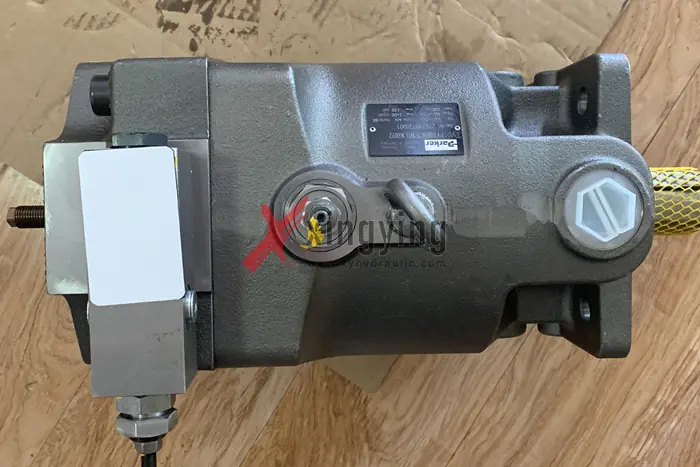How to Select the Right Parker Piston Pump for Your Hydraulic System

How to Select the Right Parker Piston Pump for Your Hydraulic System
Choosing the right Parker piston pump for your hydraulic system is a critical step in ensuring efficient, reliable, and long-lasting performance. The selection process involves evaluating various factors, including system pressure, flow requirements, noise levels, and energy efficiency. This guide outlines the key considerations for selecting the ideal Parker piston pump.
1. Evaluate System Pressure and Flow Needs
The operating pressure and flow capacity of your hydraulic system are essential parameters when choosing a piston pump. Parker Piston Pumps are designed for high-pressure systems, typically operating within 20–31 MPa. For efficient operation and extended pump life, the system pressure should ideally be 70–80% of the pump's rated discharge pressure. This ensures optimal performance without overburdening the pump.
The pump’s flow capacity must also align with the system’s requirements. The pump output should match the maximum flow demand of the actuators while accounting for potential system leakage. A pump with a flow rate slightly higher than the calculated system needs is preferable, but excessive oversizing should be avoided.
2. Consider Noise and Flow Pulsation
In applications where noise levels are a concern, Parker piston pumps are a good choice due to their relatively low noise output and moderate flow pulsation. Compared to gear pumps, which are noisier, and Vane Pumps, which have variable pulsation rates, piston pumps offer a balanced solution. For systems where noise and smooth operation are critical, the performance of Parker piston pumps is well-suited.
3. Assess Reliability, Durability, and Cost
Parker piston pumps are recognized for their reliability and durability, making them a popular choice for demanding applications. While these pumps are generally more expensive than gear or Vane pumps, their extended service life and stable performance justify the investment. This makes them ideal for industries requiring consistent operation under high-pressure conditions.
4. Account for Oil Contamination Sensitivity
Hydraulic systems must maintain clean oil to ensure the smooth operation of piston pumps. Parker piston pumps are sensitive to oil contamination, so incorporating high-quality filtration systems is essential. Regular maintenance and proper filtration will minimize wear and prolong the pump's service life.
5. Prioritize Energy Efficiency
Energy savings are a key factor in modern hydraulic systems. Variable displacement piston pumps, especially those with proportional flow and pressure control, are highly energy-efficient. Using multiple pumps, such as double or triple pumps, can also enhance efficiency by optimizing power distribution within the system.
6. Match Specifications to System Requirements
Finally, ensure the pump's rated pressure, flow, and speed align with your system’s specifications. Reference the manufacturer’s guidelines and choose a pump whose specifications meet or slightly exceed the calculated requirements.
Why Choose XingYing Hydraulic as Your Supplier?
1.Direct from Manufacturer: Benefit from competitive pricing on top-quality hydraulic products, sourced directly from our factory in China.
2.Custom Solutions: Our expertise allows us to tailor hydraulic components to your precise requirements, ensuring optimal performance.
3.Reliable Supply: Count on us as your trusted supplier for consistent quality and timely delivery, backed by our reputation in the industry.